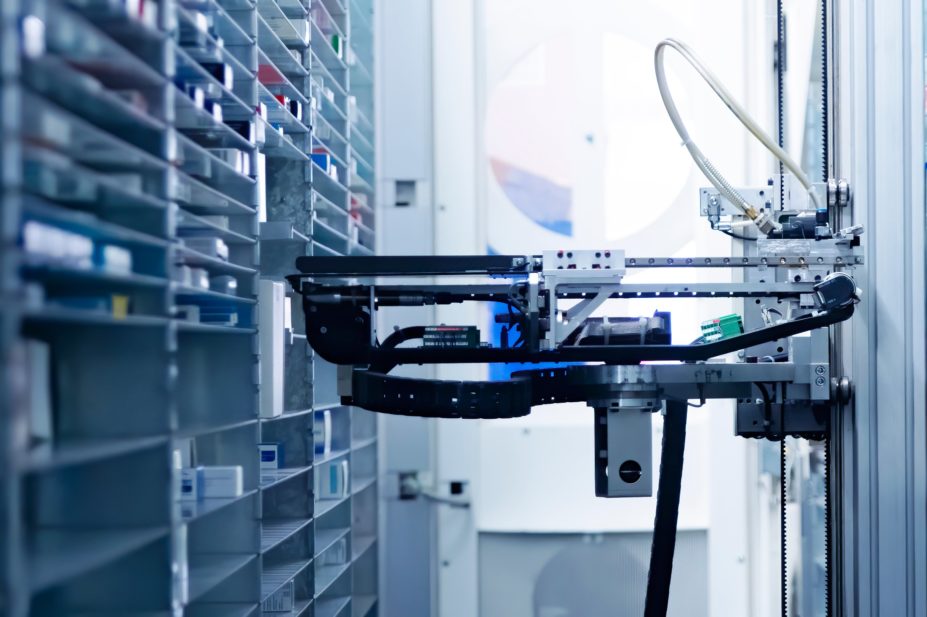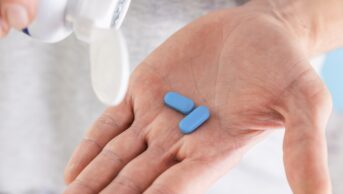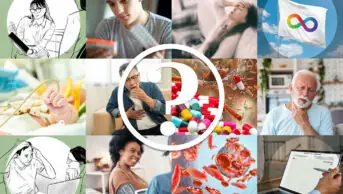
Shutterstock.com
As the sun rises, so begins a new day at Future Chemist — a spider’s web with tentacles sprawling through the surrounding areas from London to beyond.
Biola the pharmacist has worked at Future Chemist’s central hub for a long time. Her day has only just begun, and she’s already signed off over 2,000 prescriptions. She’s not alone. Behind her, every step of the way is a computer. Nicknamed TIA: Transcription Intelligence Accuracy. TIA and Biola have become best of friends. Surprisingly, TIA is quite jovial.
TIA clinically checks every prescription sent to Future Chemist. Biola just makes sure that TIA is correct and signs her off. Biola finds it funny that the computer is more accurate than her. And Biola knows that she wouldn’t be here if it wasn’t for a piece of legislation stating Future Chemist needs a human pharmacist at its central hub. Dubbed the ‘Human Touch’ legislation, it has been widely contested. Why hire a pharmacist when a robot can do the same job?
It’s lunch time, and Biola leans back in her seat and closes her eyes. She happens to think of school. She learned about a virus called COVID-19, which ravaged the world 50 years ago. Other pandemics have raged since then, but no place is safer than Future Chemist. She doesn’t even need to wear a mask: no other human is here. Everything is automated.
Suddenly, the alarm blares.
“What is it?” asks Biola, slightly irritated.
TIA reads out a patient number but all Biola saw through the CCTV footage was an sobbing elderly woman.
“Hello,” Biola says as she grabs the microphone.
The woman looks up.
“I told you, I don’t want to speak to a machine.”
“I’m not a machine,” says Biola. “I’m the pharmacist… are you okay? You seem upset.”
“I’m fine.”
“Are you sure?”
“Yes, it’s just — I’m-I’m sad. I thought if I came in here, I could speak to someone. Your machine doesn’t seem to understand that I need my medicine. It’s querying why I’m on a blood thinner and a mood agent. I’m sorry but I don’t need to be questioned on what I already take.”
“I’ll check and hopefully your medicine will be with you soon. Hmmm, I can see those are your regular medicines. I’m sure that our system picked it up because you’re not from the area. It shows you’re a new patient.”
“Yes,” replies the woman, “I came here for my husband’s funeral.”
“Oh, I’m very sorry to hear that.”
“I’m okay.”
“I’ve checked it off. It will come out through the chute. You take care.”
Biola exhales. Conversations like these are hard for her, let alone remotely. She feels fear in the pit of her stomach. She is afraid of the next virus.
She’s scared of TIA too. The algorithm is getting better. One day there won’t be an alarm. And there won’t be a pharmacist. Soon, TIA will replace her.
Oyindamola Fadayomi, hospital pharmacist, Milton Keynes University Hospital
This piece was shortlisted in our 2020 writing competition ‘Post-pandemic pharmacy: a brave new world?’


